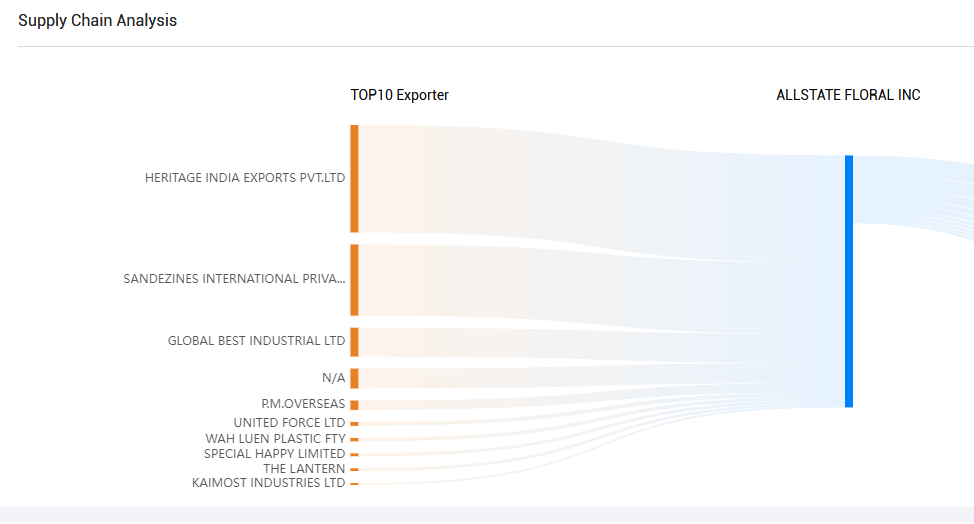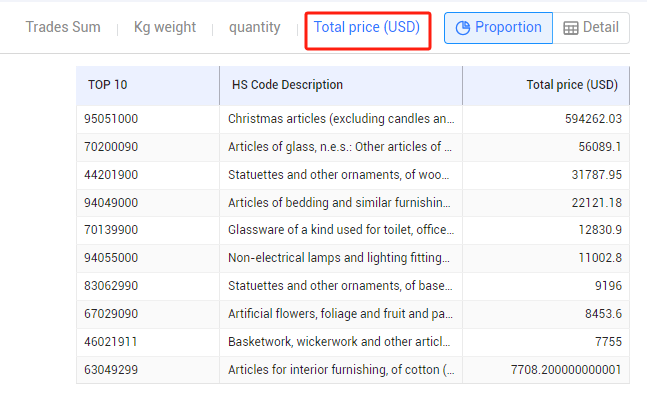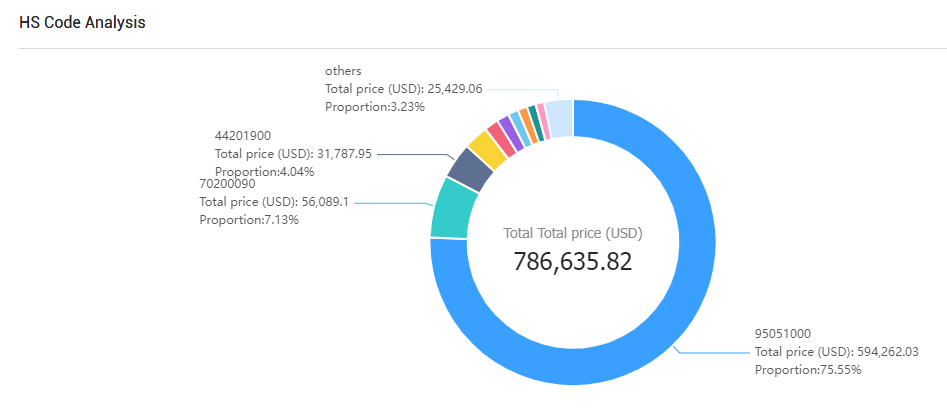 Trade Trends News
Trade Trends News
 13-06-2024
13-06-2024
US trade data, encompassing detailed records of import and export transactions, holds immense value for businesses, research institutions, and government bodies. This comprehensive data includes information on transaction volumes, values, commodity types, and trading partners, making it a critical resource for strategic decision-making and market expansion. Here's how leveraging US trade data can drive business growth and inform policy development.

Market Analysis and Insights
US trade data provides businesses with the ability to perform in-depth market demand analysis, identifying countries with high demand for specific products. By analyzing import and export trends, companies can discover new potential markets and expand their presence in existing ones. Additionally, competitor analysis becomes more feasible as businesses can identify major competitors, assess their market shares, and understand their pricing strategies. This information allows companies to develop effective competitive strategies and anticipate market shifts.

Supply Chain Management
Effective supply chain management is another significant benefit of utilizing US trade data. By examining import data, companies can identify reliable suppliers, while export data can help in finding potential buyers. This data-driven approach enables businesses to expand their supply chain networks and customer bases. Furthermore, trade data can optimize logistics by analyzing transportation routes and customs clearance times, reducing shipping costs, and improving overall supply chain efficiency.

Pricing Strategy
US trade data plays a crucial role in developing competitive pricing strategies. By analyzing the declared values of similar products, businesses can set competitive prices that attract customers while maintaining profitability. Additionally, understanding tariffs, duties, and other associated costs helps in optimizing pricing structures and managing costs effectively, ultimately leading to higher profit margins.

Risk Management
Risk management and compliance are vital for businesses engaged in international trade. US trade data aids in ensuring compliance with import/export regulations, thereby reducing legal and regulatory risks. Moreover, analyzing political and economic stability through trade data allows companies to assess market risks and develop appropriate risk management strategies. This proactive approach helps businesses navigate uncertainties and maintain operational stability.
Product Development and Innovation
Product development and innovation are key drivers of business growth. US trade data helps identify market demand for different products, guiding companies in developing new products that meet consumer needs. Additionally, trade data can uncover emerging market trends, providing insights into consumer preferences and potential areas for product differentiation and innovation.

Government Policy and Economic Analysis
For government bodies, US trade data is essential for evaluating the effectiveness of trade policies and making informed policy adjustments. This data enables comprehensive economic analysis, helping in the formulation of economic development plans. By monitoring import and export activities, governments can also ensure trade compliance, prevent dumping and subsidy practices, and promote fair trade practices.
Academic Research and Business Consulting
Academic institutions and consulting firms benefit significantly from US trade data. Researchers can conduct in-depth studies on trade, economics, and market dynamics, providing theoretical support for various academic disciplines. Consulting firms can use this data to offer strategic advice on market entry, competitive analysis, and supply chain optimization, thereby enhancing their value proposition to clients.
Compliance and Anti-Fraud Measures
Ensuring trade compliance and preventing fraud are critical aspects of international trade. US trade data helps in identifying dumping and subsidy practices, enabling government agencies to implement anti-dumping and countervailing measures. Additionally, monitoring trade activities ensures that businesses and their partners adhere to international and local trade regulations, promoting a fair and transparent trading environment.
In conclusion, US trade data is a powerful tool that enhances market insights, optimizes supply chain management, informs pricing strategies, and supports risk management. It drives product development, supports government policy-making, and facilitates academic research and business consulting. By leveraging this data, businesses can make informed decisions, mitigate risks, and seize global opportunities, ultimately leading to sustainable growth and competitive advantage.
Tendata iTrader aggregates trade data from 218 countries and detailed information on over 130 million import-export enterprises worldwide.
With a daily provision of 10 billion trade records, Tendata swiftly offers contact details of over 700 million top-level executives and decision-makers of import-export enterprises through intelligent filtering, including email addresses, phone numbers, social media profiles, and more. Additionally, we synchronize company profiles, product images, and website links, while providing 19 types of visual reports to assist foreign trade enterprises in precise market positioning and in-depth market analysis, helping you quickly locate the precise purchasers and suppliers you need.
(>>Check the Official Shanghai Tendata Website for More Details <<)

Category
Leave Message for Demo Request or Questions


 T-info
T-info T-discovery
T-discovery

 My
Tendata
My
Tendata Market Analysis
Market Analysis Customer
Development
Customer
Development Competitor
Monitoring
Competitor
Monitoring Customer Relationship
Customer Relationship





































































































































